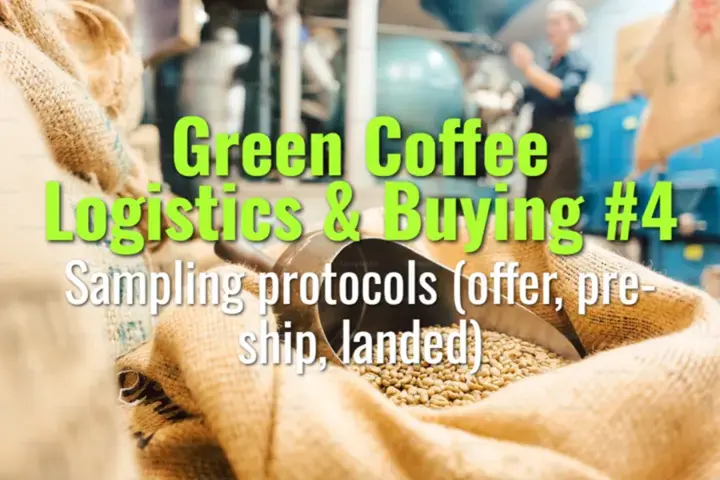Sampling protocols (offer, pre-ship, landed)
This topic explains the three main sampling stages in coffee trade—offer, pre-shipment, and landed—why each is important, and how they ensure quality and consistency across the supply chain.
- Coffee Basics Nerds
- 2 min read
Article 4 of 12 in Green Coffee Logistics & Buying/

Offer Samples
- Definition: Small samples sent by exporters or producers before a contract is signed.
- Purpose: Allow buyers to cup and evaluate lots for quality and suitability.
- Content: Typically 200–300g of green coffee.
- Use: Helps buyers decide which lots to purchase.
Pre-Shipment (Pre-Ship) Samples
- Definition: Pulled from the actual lot after milling, before loading into containers.
- Purpose: Confirm quality, moisture, and defect counts match contract standards.
- Importance: Last checkpoint in origin country before risk transfers to buyer (in FOB contracts).
- Tests: Moisture % (10–12), water activity, SCA cupping score, physical grading.
Landed Samples
- Definition: Samples taken once coffee has arrived in the consuming country.
- Purpose: Verify that the coffee shipped matches what was contracted and sampled earlier.
- Use: Final check for buyers to approve lot acceptance, release payment, or raise disputes.
- Tests: Physical inspection, moisture/a-w recheck, cupping comparison with pre-ship samples.
Why Three Stages?
- Offer sample: Establishes intent to buy.
- Pre-ship sample: Confirms contract compliance before risk transfer.
- Landed sample: Protects buyer from losses due to shipping or storage issues.
Best Practices
- Keep clear records linking all samples to lot codes.
- Cup offer, pre-ship, and landed side by side for consistency.
- Document any discrepancies for dispute resolution.
Market Implications
- Reliable sampling protocols build trust between producers, exporters, and buyers.
- Specialty markets demand strict alignment across all three stages.
- Discrepancies may lead to renegotiation, discounts, or contract rejections.
Lasting Importance
Sampling protocols—offer, pre-ship, and landed—form the quality assurance chain in coffee trade. They protect all parties, ensure transparency, and guarantee that the coffee reaching consumers is consistent with what was promised at origin.